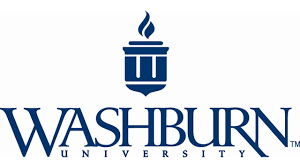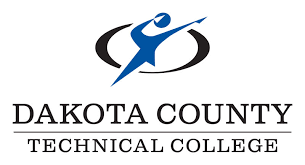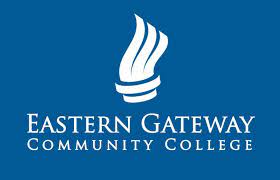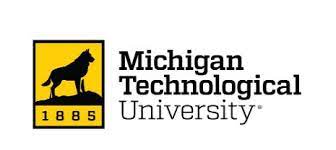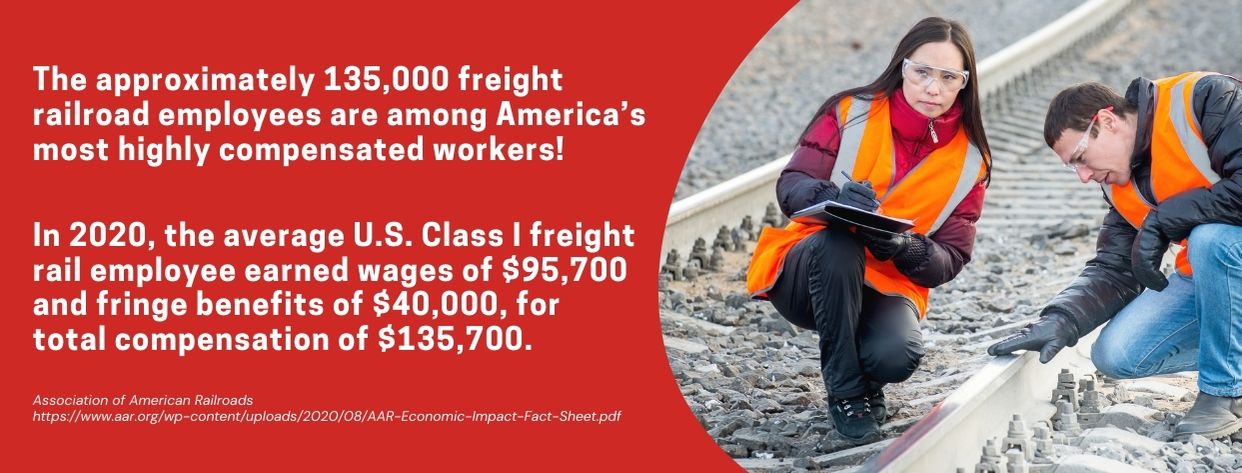Find Your Perfect School
The job of the Railroad Worker dates back to the early 1800s, and the folk song “I’ve Been Working on the Railroad” was first published in 1894. As you consider the history of the railways, think about the importance this form of transportation provided for passengers and cargo… then and now.
Becoming a railroad worker is more than just a job; it’s a way of life full of challenges, camaraderie, and the opportunity to keep America’s economy moving. It is a career that requires dedication, hard work, and a passion for the history and future of the railroad industry.
If you are interested in locomotives, history, and earning a lucrative living, perhaps pursuing a career in this field is for you! It’s a significant job opportunity steeped rich in history, prestige, and intrigue. Check this out for more information on how you can get started! ALL ABOARD!
Quick Summarization:
Get on board for a fun and exciting job opportunity as a railroad worker! Railroad workers have several educational options to consider if interested in locomotives and railroad work. Our suggestions include certificate, associate’s, and bachelor’s degree levels in the fields of railroad engineering, industrial engineering, railroad conducting, or railway transportation.
To begin your career, you will need proper training in freight and passenger trains so you can do your job efficiently and safely. Check out the Federal Railroad Administration (FRA) for more information, and see our selections below for the best schools for potential railroad workers!
WHAT RAILROAD WORKERS DO
Passenger trains transport millions of people per year, and freight trains transport tons of necessary goods for consumers each year as well. So, needless to say, railroad workers wear many hats.
However, railroad workers generally ensure that all trains are mechanically sound and in good repair and they keep maintenance records and drive the locomotives from one station to the other. Railroad workers schedule passenger trips, as passenger trains generally work on a tight schedule, as do freight deliveries.
Whether you are interested in working on a passenger train or a cargo train, you’ll be responsible for making sure everything goes smoothly and potential safety problems are avoided. And depending on your job description, you will have specific duties that work in correlation with others.
Passenger and freight trains need qualified personnel to maintain and operate them safely.
HOW TO BECOME A RAILROAD WORKER
To enter into an occupation working on the railroad, one typically needs a high school or equivalent diploma. And, without a doubt, three or more months of training is required, depending on your job description. Some positions may require up to 12 months of training. It will include classroom work as well as hands-on training.
Continued education within the fields of passenger and freight trains is a must in this occupation, which the railroad will provide either through their own company or a centralized training facility.
Methodology
Let us help you find the best programs for becoming a Railroad worker. Our researchers at PremiumSchools.org utilize these indicators of excellent academic standards to include the steps you need to find the right program for you, with these key points:
- Railroad-centered programs with flexible or convenient attendance without compromising hands-on training,
- Rigorous yet engaging and up-to-date Railroad coursework that takes into account the readiness of students to take the next step in their careers,
- Outstanding faculty consisting of experts in the field of railway transportation,
- Displays excellence among academic agencies, industry organizations, and journalistic resources,
- Stellar reviews and feedback from railroad alumni and students,
- Offers programs that offer a wide range of financial support for eligible students.
For more information, see our Methodology page!
10 BEST SCHOOLS FOR A RAILROAD WORKER DEGREE
Carl Sandburg College
(On-campus) Locomotive Electrical Certificate
Students in CSC’s Locomotive Electrical Certificate program learn the fundamentals of locomotive electrical systems and, thus, become adept in the operations and maintenance of locomotives. Students also become competent in the basic operations and maintenance of EMD diesel engines and the GE Dash 8/9 locomotive systems.
This is a 30-credit hours program that can be completed in one year over the fall and spring semesters. There are no general education and elective courses since it’s a technical certificate program. The curriculum has a sequential order, so students must get passing grades for all subjects to stay on track.
A few examples of the course titles are:
- Electrical Fundamentals
- Introduction to Welding
- Industrial Safety
- Machine Tool Fundamentals
- Locomotive Electricity
- EMD Basic Electrical
- GE Dash 8/9 Electrical System
Students train at The Center for Manufacturing Excellence (CME) with its spacious classrooms and computer lab. CDC is also an NARS-designated training site where locomotive mechanical and electrical courses are conducted. Students gain hands-on skills training using the diesel engines and welding lab, too.
This is an open admission program, and candidates must comply with minimum requirements. High school transcripts or GED score reports are required, and there’s a placement exam for candidates, too.
Programs Offered:
- Nursing
- Mortuary Science
CSC’s one-year Locomotive Electrical Certificate program may well be your golden ticket/shortcut into the railroad industry. Potential railroad workers, grab this opportunity now!
University of Illinois Urbana-Champaign
(On-campus) Certificate in Railroad Engineering or Transportation Engineering
Illinois’ Rail Transportation and Engineering Center (RailTEC) offers several programs designed to train the next generation of railway workers and managers. The most popular are the Certificate in Railroad Engineering and the Certificate in Transportation Engineering. Both are under the civil and environmental engineering departments as specialized areas.
In both certificates, the students must complete 12 credit hours of studies or an equivalent of 3-4 courses. But each course cannot be applied to both certificates. Students must earn at least a B- grade in every course for continued participation. Both programs feature world-class faculty, partnerships with industry players and government agencies, and research programs.
The Certificate in Railroad Engineering program consists of courses dedicated to railroad operations. Course titles include Railroad Transportation Engineering, Railroad Track Engineering, and Railroad Project Planning and Design.
The Certificate in Transportation Engineering program is suitable for practicing engineers looking for extra technical expertise. The railroad-specific topics include Railroad Project Planning and Design, High-Speed Rail, and Logistics System Analysis.
Individuals interested in a railroad industry career can also consider Illinois’ bachelor’s degree in civil engineering with a concentration in railway transportation. Illinois also offers numerous workshops, online classes, and seminars with a railroad focus. There’s even a yearly Railway Engineering Short Course offered each summer! For higher studies, check out the master’s and doctoral degree programs in civil engineering, too.
Programs Offered:
- Veterinary Medicine
- Social Work
There are plenty of educational opportunities for aspiring and practicing railroad workers at the University of Illinois! Check out the Certificates in Railroad Engineering and Transportation Engineering today.
Johnson County Community College
(Hybrid) Six-week Conductor Training Certificate Program
JCCC and BNSF Railway, North America’s largest freight railroad network, established a partnership to offer the Conductor Training Certificate program. This is also in partnership with the National Academy of Railroad Sciences (NARS), the country’s foremost provider of educational opportunities for aspiring and practicing railroad professionals.
Students learn under the guidance of former railroad conductors with training sessions conducted in simulated and laboratory conditions. The large 130,000-square-foot training facility includes a classroom, multimedia studio space, and laboratory.
The six-week certificate program has two start dates – fall and summer. Students must be prepared for intensive training as five months of training is compressed into these six weeks.
The original delivery format was on-campus classes, but current COVID-19 restrictions resulted in a hybrid format. Students and faculty members have daily online classes via Zoom and Canvas. Attendance is mandatory due to the fast-track design.
Between six and eight hours of study time is recommended as if it’s still a classroom-based program. Students spend one week of field training to satisfy the program’s requirements. Graduates may get interview appointments at BNSF Railway and other industry organizations.
(If the accelerated six-week version isn’t suitable for your lifestyle, you can consider the original five-month program.)
Programs Offered:
- Five-week Conductor Certificate
- AAS in Railroad Operations
Attention all potential railroad workers! Getting a conductor job in just six weeks of training seems impossible. But JCCC’s Six-week Conductor Training Certificate Program makes the impossible possible! Check it out now.
Washburn University
(On-campus) AS in Industrial Technology
Washburn offers a clear-cut path toward a successful career in the railroad industry. You can earn both a Certificate in Diesel Technology and an AS in Industrial Technology in three years. With these credentials, employers will determine that, indeed, you’re a qualified professional with personal determination, too!
Earn the Certificate in Diesel Technology from Washburn Tech first, a one-year program with start dates in August and January every year.
This is a day program with a Monday to Friday schedule, from 8 a.m. to 2:55 p.m. The full-time program emphasizes hands-on training at state-of-the-art training facilities and on subjects like overhauling, tune-ups, and transmissions.
Then, enroll in Washburn University’s AS in Industrial Technology program for career advancement. Students gain a liberal arts education emphasizing communication, math, and psychology, which translates to transferable skills. Other courses include English, music and art, and history, contributing to a well-rounded education.
Of course, technology courses are on the curriculum to complement the technical skills learned in the certificate program.
Students with concurrent enrollment at Washburn Tech’s certificate program and Washburn University’s associate degree program qualify for reduced tuition. But it’s also acceptable to pursue each program individually.
There’s a six-year prescription between the completion of the credit program and the start of the associate degree program. The associate degree must also be completed within six years after its start date.
Programs Offered:
- Cosmetology
- Exercise and Rehabilitation Science
Work hard in earning your AS in Industrial Technology degree from Washburn and reap the rewards of a well-paying job as a worker in railroad occupations! Check it out now.
Dakota County Technical College
(On-campus) AAS in Industrial Engineering Technician
DCTC offers an excellent 60-credit AAS in Industrial Engineering Technician program that attracts aspiring and practicing railroad professionals.
The rigorous training challenges students to gain knowledge and skills vital to various operations’ design, maintenance, and modernization. These include railways and railroads where industrial engineering principles and practices are commonly applied.
The skill sets can be applied in operating and maintaining equipment, devices, and machinery with mechanical, electromechanical, hydraulic, and pneumatic parts. Students even learn about programmable logic controllers that enhance their skills and, thus, make them more attractive to employers.
The coursework includes welding, mechatronics, blueprint reading, fluid power, process controls, instrumentation, and predictive/preventative maintenance.
Students must be attentive listeners, possess critical thinking and problem-solving skills, and have good attention to detail with the technical-heavy coursework. These transferable skills can be applied in whatever path your career takes you, perhaps from conductor to operations manager.
Academic credits can be approved for prior earned college credits and life experiences, including work and military service. These credits can shorten the time spent in the program and, thus, save money on tuition. DCTC also offers scholarship opportunities and work-study positions.
Programs Offered:
- Architectural Technology
- Graphic Design Technology
Getting started on your railroad career on the right foot is vital to your success. Start it by enrolling in DCTC’s AAS in Industrial Engineering Technician program ASAP!
The Pennsylvania State University – Altoona
(On-campus) BS in Rail Transportation Engineering
Penn State Altoona prides itself on being the first to establish the first and only BS in Rail Transportation Engineering in the country!
Students train to become movers and shakers in the railroad industry with their in-depth knowledge and world-class skills in engineering. With Penn State’s excellent reputation for academic instruction, graduates receive multiple offers of employment, too.
The depth and breadth of knowledge and skills that graduates possess are the results of its comprehensive curriculum.
Students gain a solid background in railroad operations, from design and engineering to maintenance and management. The rigorous coursework, which challenges even the smartest student, covers the following areas, among others:
- Design, maintenance, and modernization of rail and track structures as well as railcars and locomotives
- Engineering principles and practices behind these structures and their components
- Transportation logistics
- Railroad signals and communications
- Network planning, operations, and management
- Dynamics of the wheels and tracks
- Construction management
Faculty members with impressive credentials lead the classes and share their knowledge with students. Beyond the classroom, students gain hands-on experience through laboratory sessions and field experiences. These include working with professional railroad workers in the design, construction, and maintenance of railroad infrastructure. Graduates are ready for the workplace with such intensive academic and practical training.
Programs Offered:
- Environmental Studies
- Security and Risk Analysis
Penn State’s BS in Rail Transportation Engineering program is unparalleled, and it’s a good reason for potential railroad workers to check it out today!
Sacramento City College
(On-Campus) AS in Railroad Operations
SCC’s AS in Railroad Operations program requires students to complete 60 units to earn the degree. General education and electives are part of the total number of required units along with the 19 units from these six required courses:
- History of Railroading
- Railroad Technical Careers
- Railroad Operations
- Railroad Safety, Quality, and Environment
- Railroad General Code of Operating Rules
- Railroad Field Operations
This is the best fit for individuals interested in a successful career in the railroad industry. Possible positions include conductor and engineer, and even the Operations Manager with extensive work experience and advanced studies.
Graduates possess the following traits:
- The ability to pass an interview for railroad positions, including conductor or engineering technician
- The knowledge and skills to perform entry-level railroad jobs according to industry and company standards
- The knowledge related to the history, operations, environment, and safety of the railroad industry, including federal regulations over it
Admission is on a competitive basis, with candidates evaluated based on their academic record. Candidates must have a high school diploma or GED equivalent and satisfactory grades in math, physics, English, mechanics, computers, and electronics. Candidates must have no criminal record, moving violations, or drug convictions and be able to lift at least 90 pounds.
SCC also offers a Certificate in Railroad Operations program, which students earn by completing the abovementioned six courses.
Programs Offered:
- Aeronautics
- Community Leadership Development
Two years spent earning the AS in Railroad Operations degree will fly by quickly, and you can establish your career in the railroad industry. Enroll in it and see where its excellent training takes your career!
University of Nevada Las Vegas
(On-campus) Railroad Program Courses
UNLV is the best place to go if you’re looking for a wide range of educational opportunities useful in starting careers and enjoying career advancement in the railroad industry!
Undergraduate and graduate students are welcome to apply for these courses provided they meet the eligibility requirements, including academic level.
The courses are:
- Introduction to Railroad Transportation
- Railroad Engineering
- Railroad Operations
- Freight Transportation
- High-Speed Rail
- Public Transportation Systems
UNLV also offers numerous seminars, workshops, and field trips that enhance the knowledge and skills of practicing railroad professionals. The field trips are particularly popular because they combine travel, education, and adventure to places like the Barstow Classification Yard and the Nevada State Railroad Museum.
The seminars and workshops not only provide educational opportunities but also become venues for professional networking and socialization.
Students in the program can also get access to many of the industry’s prominent local and national companies.
The UNLV campus is near the offices of BNSF, XpressWest, and X-Train. Students also enjoy the benefits of joining student organizations like the American Railway Engineering and Maintenance-of-Way Association (AREMA). Membership means access to AREMA’s range of seminars, field trips, and short courses, too.
Programs Offered:
- Solar and Renewable Energy
- Tech Commercialization
Check out UNLV’s impressive array of short courses and other educational opportunities for railroad workers! You won’t likely find anything more comprehensive.
Gateway Community College
(Hybrid) AS in Railroad Engineering Technology
The largest state community college in Connecticut, Gateway offers two options for its AS in Railroad Engineering Technology degree.
These are two-year or four-semester programs that are ideally taken on full-time enrollment. Both, however, prepare students for successful careers in the railroad industry, possibly as leaders with more advanced studies and work experience.
First, the Electromechanical Option prepares students for positions where proficiency in electromechanical matters is a must. Most graduates become involved in the predictive and preventive maintenance as well as repair of railcars.
The technical coursework includes Electromechanical Controls, RR Pneumatics and Hydraulic Controls, and Passenger Railroad Practicum. The general education coursework includes Composition, Fundamentals of Human Communications, and Math for Science and Technology.
The Communication and Signaling Option is for individuals interested in railroad signaling and switching, among other communication-related positions. Graduates are competent in their basic design and operations and intermediate to advanced maintenance through years of experience.
Many of the courses in both options have transferable credits in case you want to pursue higher education. These include hydraulics, pneumatics, motor controls, and electronics. The degree itself can lead to linemen, radio maintenance, conductors, carmen, train dispatchers, and signal maintainers.
At present, the courses are delivered mostly online. Students may also request for their previously earned college credits to be transferred into their program of study. GCC also grants academic credits for military training and life experiences.
Programs Offered:
- Early Childhood Education
- Business – Marketing
Hop on the train to your successful career by getting the best ticket – the AS in Railroad Engineering Technology degree from Gateway!
Michigan Technological University
(On-campus) Rail Transportation Program
Michigan Tech welcomes undergraduate and graduate students to explore its Rail Transportation program with its wide range of courses. These are available either as individual courses or as a series of courses relevant to a Minor in Rail Transportation. The minor itself combines interdisciplinary and trade-specific courses that contribute to the student’s overall skill sets.
The courses include:
- Introduction to Rail Transportation (Overview of the past and present freight and passenger railroads in North America)
- Railroad Engineering (Overview of the design, operations, and maintenance as well as the modernization of railroad and railway infrastructures)
- Transportation Design (Introduction to the planning, design, and construction of railroads, intersections, and highways)
- Logistics and Transportation Management (Overview of the transportation and distribution services in the railroad industry)
- Public Transit Planning and Engineering (Exploration of the history and current trends, behavior, and financing of the public transit system)
Through these courses, students develop their fundamental understanding of the railway and railroad industry in North America and use it to advance their knowledge. Students become adept at discussing matters related to rail systems and infrastructures using the industry’s jargon. Leadership skills are emphasized in these courses, too.
Programs Offered:
- Engineering Management
- Cybersecurity
Michigan Tech’s Minor in Rail Transportation can be paired with many major areas of study. Check it out, and you may well be on the fast track to success!
FREQUENTLY ASKED QUESTIONS
What jobs in the field of Railroad work should I consider?
Speaking of wearing many hats, railroad workers will be required to know many skills; however, you may choose to focus on a particular job description. Here are a few suggestions:
- Railroad Conductors
- Locomotive Engineers
- Brake Operators
- Track Laborers
- Signal & Switch Operators
- Rail Yard Engineers
- Dispatchers
- Diesel Electricians or Mechanics
- Freight Car Repairers
- Welders
- Crew Members
- Yard Engineers
- Railcar Loaders
- And, many more!
How do I become a Railroad Worker?
To enter into an occupation working on the railroad, one typically needs a high school or equivalent diploma. And, without a doubt, three or more months of training is required, depending on your job description.
Some positions may require up to 12 months of training. It will include classroom work as well as hands-on training.
Continued education within the fields of passenger and freight trains is a must in this occupation, which the railroad will provide either through their own company or a centralized training facility.
Where do Railroad Workers find jobs?
Several major railways are excellent to work for; however, according to an article by Train Conductor Headquarters, the top railroad companies are:
- BNSF
- Canadian National Railway
- AmTrak
What are the working conditions for Railroad Workers?
Railroad workers generally work more than 40 hours per week, given that trains operate 24/7; however, regulations state how many hours can be worked in succession and a minimum of rest hours between shifts.
For some, many days or weeks away from home are normal. As you gain seniority, you can choose your schedule, depending on the job.
What kind of salary can I expect as a Railroad Worker?
As of May 2021, the Bureau of Labor Statistics states that the average salary of the railroad worker was a median wage of $68,960 per year. The highest 10% earned upwards of $87,960 annually, with the Locomotive Engineer earning the most in this field.
Is there a demand for Railroad Workers?
According to the Bureau of Labor Statistics, the employment of workers in the railroad industry is expected to grow by only 1% between 2022 and 2032, which is much slower than average for all occupations. However, workers will be needed to replace retirees.
As you can imagine, the state of the economy can affect the growth or decline of cargo transportation; therefore, the number of workers needed will vary.
Do I need certifications to become a Railroad Worker?
Railroad workers may need to be certified. It will depend primarily on your job title. Locomotive Conductors and Engineers are required to be certified by the Federal Railroad Administration (FRA).
Also, railroad workers must pass a background check, be at least 21 years old, and pass a drug and alcohol test, which is also done randomly.
Are apprenticeships necessary for Railroad Workers?
Most definitely, railroad workers must have on-the-job training. You will ride with a seasoned engineer to gain valuable experience.
Is working on the railroad dangerous?
According to an article, railroad workers are more prone to injuries than other occupations. Besides horrific accidents resulting in death, many injuries, such as back strain, burns, cuts, electrical shocks, and loss of limbs, are common problems.
The Federal Employers Liability Act (FELA) protects railroad workers injured while on duty.
What problems do Railroad Workers face today?
- Risk of injury: Railroad workers face a high risk of on-the-job injuries due to the physical demands of the job and the heavy machinery they are required to operate.
- Exposure to hazardous materials: Railroad workers may come into contact with hazardous materials, such as chemicals, asbestos, and diesel fumes, which can have long-term health effects.
- Work schedule and fatigue: Railroad workers often have irregular work schedules, including long hours and overnight shifts, which can lead to fatigue and impact their overall health and well-being.
- Mental health struggles: The isolated and high-pressure work environment of railroad workers can lead to mental health issues like anxiety, depression, and post-traumatic stress disorder.
- Automation and job loss: The railroad industry has increasingly turned to automation, leading to job loss for many workers. This can cause financial strain and uncertainty for those affected.
- Aging workforce: Many railroad workers are reaching retirement age, but a lack of younger workers and limited recruitment efforts could lead to a shortage of skilled workers in the industry.
- Union challenges: Industrial disputes and changes in labor laws have put pressure on railroad worker unions, making it difficult for them to negotiate favorable salaries and benefits for their members.
- Safety concerns: With increasing demands on the industry for faster and more frequent trains, some railroad companies may prioritize efficiency over safety, putting workers at risk.
- Job insecurity: Due to the competitive nature of the industry and ongoing layoffs, railroad workers may face uncertainty about their job security and future employment prospects.
- Lack of access to healthcare and benefits: Railroad workers may struggle to access affordable healthcare and other benefits, making it challenging to maintain their health and well-being.
KEY POINTS TO PONDER
- Freight and passenger trains alike require qualified personnel to operate and maintain them.
- Passenger trains transport millions of people a year either across the country or locally.
- The rail transportation industry concentrates on passenger and freight trains themselves; however, railroad workers also perform work to be done on railroad-related equipment, and railroad tracks, as well as dealing with unruly or upset passengers where you can put your customer service skills to good use.
- Railroad occupations include rail yard engineers, locomotive engineers, railroad conductors, signal and switch operators, train traffic operators, heavy equipment operators, and more.
- The Federal Railroad Administration required railroad workers to have the proper licensing and credentials to do their jobs.
- Additional Resource: Low-Stress Careers With Jobs That Pay Well
- Related Article: The Highest Paying Jobs With A Trade School Education
- Check this out: Trade School Jobs and Careers




